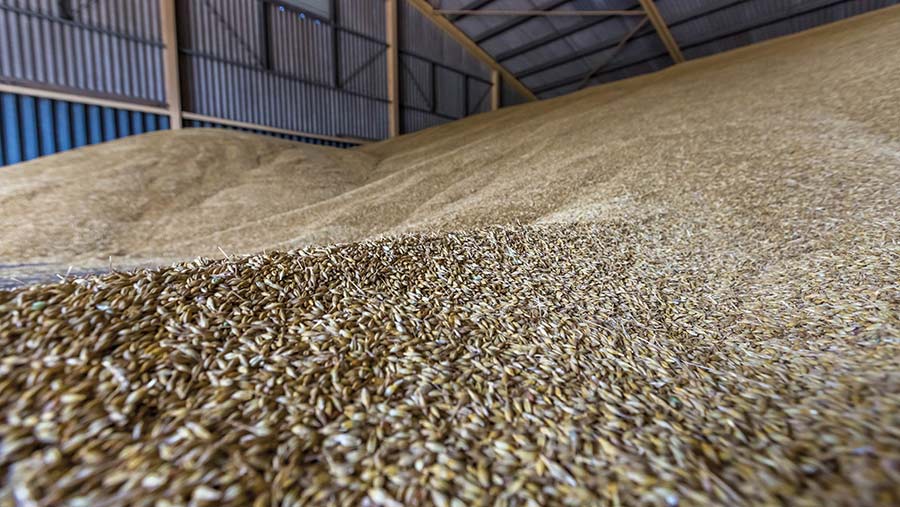Business Clinic: New use for farm building raises VAT questions
 © Tim Scrivener
© Tim Scrivener Whether you have a legal, tax, insurance, management or land issue, Farmers Weekly’s Business Clinic experts can help.
Here, Andrew Robinson, partner and head of agriculture, Armstrong Watson advises on VAT issues when converting farm buildings.
See also: Business Clinic – what are the tax issues on selling stock
Q: We are restructuring our arable farming business.
Instead of using our own machinery, and storing grain on-farm, we are engaging a contractor who will provide all the machinery and labour, and arrange for off-farm storage of the harvested crops.
This will mean our buildings will be empty and we are planning to rent them to non-farming businesses.
We have been quoted a cost of £60,000 plus VAT to sub-divide the buildings into multiple units, improve security, and provide parking facilities.
We are advised that there are VAT implications of this project. Can you assist please?
A: Whenever a business diversifies away from mainstream farming, there are likely to be VAT issues.
This can either be that VAT has to be paid on the income generated, or there may be a restriction on claiming VAT on expenses.
Traditional farming businesses are in the fortunate position that the sale of crops and livestock are zero-rated supplies for VAT, which means there is no VAT charged on sales, but VAT on related expenses is reclaimable, subject to the normal rules.
The default position is that the receipt of rent is an exempt supply, which means VAT is not charged on the income, but VAT cannot be reclaimed on any associated expenses.
As always with VAT, there are exceptions to this general rule:
- You can make an election to “opt to tax” the buildings, which means standard-rate VAT is charged on the rent, but VAT on expenses can be recovered in full. If any of your prospective tenants are small businesses that are not VAT registered, they will not be able to reclaim the VAT on the rent, and you are at a commercial disadvantage. An option to tax normally lasts for 20 years, so careful thought needs to be given before doing this.
- Since 2012, the provision of storage facilities has been standard-rated, which means 20% VAT is charged on the rents regardless of whether an option to tax has been made. It is therefore essential that you know what use your tenants are making of your building.
- A business that is making both exempt and zero-rated supplies is partially exempt for VAT purposes. It is allowed to claim small amounts of VAT on costs related to exempt supplies if the amounts are within the “de-minimis limit”. These rules are complex, but in brief the VAT on the building improvements needs to be less than £625 a month, or £7,500 a year, to be reclaimed in full. It is also necessary that the VAT on farm costs is greater than the building costs, but this is unlikely to be an issue here as you will still be incurring VAT on input costs and contractors’ bills. The quote of £60,000 plus VAT will be above the de-minimis limit, and none of the VAT will be recoverable. Options here include getting non-VAT registered tradesmen to do part of the work, or to spread the cost over two or more VAT years.
In summary, great care needs to be taken regarding VAT and farm diversifications, and it is essential to take advice at an early stage of the project.
Do you have a question for the panel?
Outline your legal, tax, finance, insurance or farm management question in no more than 350 words and Farmers Weekly will put it to a member of the panel. Please give as much information as possible.
Email your question to FW-Businessclinic@markallengroup.com using the subject line “Business Clinic”.
